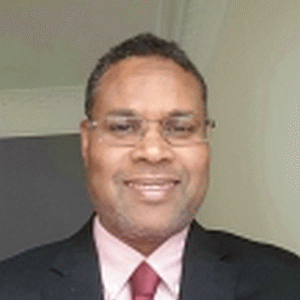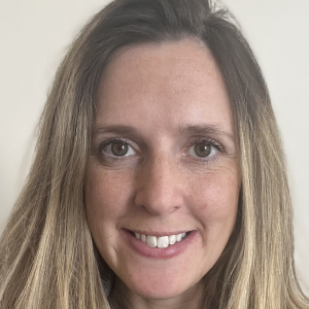Child Oral Health / Childsmile Evaluation
Lead Contacts: Professor Andrea Sherriff, Professor David Conway,
Overview
Childsmile is the national child oral health improvement programme for Scotland.
It was developed as pilot studies from 2006/7, building on an established national supervised toothbrushing programme in nursery schools. By 2011, an integrated programme was in place in all NHS Boards across the country.
An integrated theory-based evaluation led by the University of Glasgow, funded by the Scottish Government, has been an important feature of the programme from its outset.
Since August 2013, the Childsmile approach has been adopted in Chile, England, Israel, Malawi, the Netherlands, countries of Southeastern Europe and Vanuatu.
In 2019, the European Commission recognised the Childsmile methology as public health best practice.
Evaluation approaches
Aims
To understand and tackle the social determinants of childs oral health and reduce child oral health inequalities.
Process evaluation
The in-depth, mixed-methods process evaluation assesses how closely the programme is operating according to how it was envisioned initially, ie whether the anticipated changes in service provision and behaviours, necessary for child oral health improvement, have occurred. This includes, for example: activity levels for fluoride varnish applications in education and dental practice settings; dental registration and attendance rates; toothbrushing activity; DHSW and other community-based early years’ activity. Where necessary, research is conducted to investigate the barriers and facilitators for the implementation of component parts of the programme. Identification of these factors can facilitate ongoing refinement to enhance programme delivery still further.
Outcomes
Outcomes from the programme are being investigated mainly via a pioneering big data linkage project. This involves linking multiple routine administrative national health and education datasets to create a birth cohort to evaluate the complex multiple interventions of Childsmile with a range of health and education outcomes.
An economic evaluation, investigating the cost-effectiveness of the programme and its components, accompanies this work. Furthermore, an embedded, randomized control trial of the nursery fluoride varnish programme – Protecting Teeth @ 3 trial10 – has recently been completed.
Evaluation is ongoing
The programme is a complex multifaceted programme delivering prevention interventions in multiple settings (through health visitors, in communities with dental health support workers, in nurseries/school settings, and in dental practices). The programme has not been a single fixed model but has been dynamic and evolving since its establishment. Part of its success of Childsmile has been the long- term vision and support from successive Scottish Governments (of differing political make-ups) since its inception in 2005/06. The ongoing evaluation of the programme has also been crucial to programme development and achievements. While there has been considerable success in improvement of child oral health in Scotland over this period, there remains substantial ongoing challenges including persistent inequalities in child oral health; and more recently, the COVID-19 pandemic has had a major impact on the Childsmile programme and stalled the trend of improving child oral health in Scotland. Ongoing monitoring and evaluation of the Childsmile programme is essential to meeting the challenge of child oral health and inequalities both in Scotland and globally.
Child Oral Health Data Lab
Our Child Oral Health Data Lab is hosted within the NHS Scotland National Safe Haven and links over one million individual child records across numerous routine administrative health and education datasets to answer key evaluation questions.
Full approval has been given by the Health and Social Care Public Benefit Privacy Panel (HSC-PBPP) and the Statistics Public Benefit Privacy Panel (S-PBPP) for this data linkage.

Privacy Notice for Evaluation of the Childsmile Programme
Public Health Scotland and the Scottish Ministers (Scottish Government) will be the ‘Data Controllers’ of personal data processed in relation to this study, which is performed in the public interest. This privacy notice will explain how your personal data will be processed by the University of Glasgow.
Study background
Childsmile is the national oral health improvement programme for children in Scotland, and aims to improve child oral health, reduce inequalities in outcomes and access to services. It is funded by the Scottish Government and delivered by the NHS to all children from birth to 17 years through a variety of educational (nurseries and schools) and community settings (dental practices, home visits). The programme started in the early 2000’s with various different pilot programmes running in different Health Boards from 2006 and was fully rolled out across the 14 Health Boards in Scotland from 2011.
Part of its success has been the long-term vision and support from successive Scottish Governments since 2005/06.
The evaluation of the Childsmile programme is led by the University of Glasgow (Central Evaluation and Research Team) in partnership with NHS Scotland. The evaluation has received core funding from the Scottish Government alongside ongoing external grant funding. The evaluation aims to find out if the Childsmile programme is reaching the children it should across Scotland and if it has improved oral (and general) health and reduced health inequalities. In addition, we wish to find out which components of the Childsmile programme seem to work best under which circumstances to help the Scottish Government and NHS Scotland prioritise prevention services. We worked with parents/carers, policy makers, education staff, social workers and dental teams to determine which outcomes we should be evaluating for the Childsmile programme. As well as oral health outcomes, our stakeholders identified other health and education outcomes that they believed should/could be impacted by the programme such as obesity, diabetes, multimorbidity (due to common risk factors), and school attendance (days absent due to dental problems).
Why we need your data
We are collecting basic personal data such as ethnicity, care status, additional support needs information, as well as family socioeconomic circumstances (occupational and educational), health record data (including mental health) and parental and household information that may be risk factors for tooth decay (such as parental smoking).
We are processing data from Public Health Scotland and the Scottish Government, including oral health data, hospital admission data, prescribing information, dental attendance and engagement with the Childsmile programme as well as school data to help us understand if the Childsmile programme is reaching and benefitting all children in society, and particularly those in greater need. We will be collecting these data for individuals in the general population from birth to 17 years (when children and families should have access to the Childsmile programme).
We are also collecting data on the operational activities of Childsmile staff for our economic and environmental sustainability evaluation – these data will include workplace postcodes in order to estimate travel costs and resource use to support Childsmile’s sustainability targets.
Legal basis for processing your data
Tooth decay affects almost half of all 5-year-old children in Scotland with those from more socioeconomically deprived areas experiencing a greater burden of disease. Tooth decay is the most common reason for children being admitted to hospital for general anaesthetic in the UK and costs the NHS millions of pounds each year in treatment costs.
Childsmile is the national child oral health improvement programme for Scotland and helps prevent tooth decay in children from birth and reduce inequalities in tooth decay and access to preventive services. It may also prevent other conditions that share common risk factors (i.e sugar consumption as a risk factor for both childhood tooth decay and obesity). Improving oral health and reducing inequalities is a top global public health challenge and is a priority of the Scottish Government. Therefore, the processing of these data is to perform a task which is in the public interest.
For personal data: Article 6(1)(e) Processing is necessary for the performance of a task carried out in the public interest or in the exercise of official authority vested in the controller.
For special category data: Article 9(2)(j) processing is necessary for archiving purpose in the public interest, scientific or historical research purposes or statistical purposes.
What we do with the data and who we share it with
All data are anonymised to researchers and stored within the National Safe Haven (https://www.isdscotland.org/products-and-services/edris/use-of-the-national-safe-haven/). All data will be analysed by members of the Childsmile Evaluation research team using a University of Glasgow Virtual Private Network to safely and securely link to the National Safe Haven. All of our researchers are “Approved Researchers” and undertake regular training in Information Governance (MRC course in Research, GDPR and confidentiality; University of Glasgow Research Integrity Training/ Research Data Management).
How long we keep data for
Data will be retained for 10 years. After this time, data will be securely deleted.
Further information
If you require further information about this study, or how we process personal data, please email; andrea.sherriff@glasgow.ac.uk or david.conway@glasgow.ac.uk . Full contact details are given below:
Professor Andrea Sherriff
Professor of Epidemiology and Statistics (Dental School)
Telephone: 0141 211 9750
Email: Andrea.Sherriff@glasgow.ac.uk
School of Medicine, Dentistry & Nursing, Level 9, L11, 378 Sauchiehall Street, Glasgow
Dental Hospital & School, Glasgow, G2 3JZ
Professor David Conway
Professor of Dental Public Health (Dental School)
Telephone: 0141 211 9750
Email: David.Conway@glasgow.ac.uk
School of Medicine, Dentistry & Nursing, R1012 Level 10, 378 Sauchiehall Street,
Glasgow Dental Hospital & School, Glasgow, G2 3JZ
Complaints
Should you wish to exercise your data rights and raise a complaint regarding our use of personal data in this study, you can contact the University of Glasgow Data Protection Office, who will investigate the matter. The Data Protection Office can be contacted at: dataprotectionofficer@glasgow.ac.uk.
If you are not satisfied with our response or believe we are not processing your personal data in accordance with the law, you can complain to the Information Commissioner’s Office
(ICO) https://ico.org.uk/
Monitoring
Monitoring of the Childsmile Programme has key functions: management (including workforce planning and training); feedback of data to inform programme development; and evaluation (in relation to programme reach and effectiveness).
The monitoring data for the Childsmile programme are collated electronically through the University of Dundee Health Informatics Centre (HIC) (external website) hin partnership with Public Health Scotland (PHS), and university of Glasgow Childsmile Evaluation Research Team (CERT). PHS working with colleagues in the Practitioner Services Division (PSD) NSS, process GP17 forms, which, in addition to assisting payment for practitioners, provides data for the monitoring and evaluation of Childsmile Practice. PHS also coordinate data received from NHS Boards, which benchmarks progress with the Childsmile Supervised Toothbrushing component. Data from monitoring sources is used to produce annual headline reports which present longitudinal data for the Integrated Childsmile Programme at a national level. Where appropriate, data are presented by Health Board and Scottish Index of Multiple Deprivation. A principal aim of these documents is to show progress over time for all components of the programme.
Childsmile Projects
Additional Support Needs – child oral health
- Investigating oral health and preventive service access among children with intellectual disabilities and additional educational support needs.
- Population-based data linkage cohort study
- Funded by Baily Thomas Foundation (2018-2023)
Contact: Professor David Conway: Email - David.Conway@glasgow.ac.uk
Preventing Early Childhood Caries in Education Settings
- Building an international consensus for Early Childhood Caries prevention in education settings, including fluoride intervention in early years education setting.
- A systematic overview of the literature and Delphi approach
- Mapping and benchmarking Early Childhood Prevention programmes in South-Eastern European countries
- Funded by Borrow Foundation (2021-2023)
Fluoride Interventions in Early Years Education settings
Publication: https://eprints.gla.ac.uk/344059/
Link to supplementary material: Supplementary tables
Contact: Professor David Conway: Email - David.Conway@glasgow.ac.uk and Professor Al Ross: Email - Alistair.Ross@glasgow.ac.uk
Early Childhood Caries (ECC) and inequalities- the role of behaviours, social determinants, and the impact of the Childsmile programme: A novel data linkage cohort study
- Linking social, economic, family, child level data from the Growing up in Scotland Survey to routinely collected population wide caries and Childsmile intervention data from the Child Oral Health Data Lab within the National Safe Haven.
- Funded by Borrow Foundation (2021-2025)
Contact: Professor, Andrea Sherriff: Email- Andrea.Sherriff@glasgow.ac.uk and
Mr. Kyle Cousins: Email Kyle.Cousins@glasgow.ac.uk
Poor oral health in childhood as an early predictor of multimorbidity: The Canary in the Mine?
- Development of a childhood multimorbidity index to identify if poor oral health signals an early risk for multimorbidity, and if the Childsmile programme can offer early interventions to mitigate this.
- Population wide data linkage using our Child Oral Health Data Lab within the National Safe Haven.
- Development of a PPI group for multimorbidity in childhood.
- Wellcome Trust Doctoral Training programme in multimorbidity for Health professionals 2024-2027
Contact: Professor Andrea Sherriff: Email- Andrea.Sherriff@glasgow.ac.uk and
Miss Frances O'Leary: Email Frances.OLeary@glasgow.ac.uk
Design, development and implementation of the STAR toothbrushing tool
The STAR toothbrushing tool is a home-based toothbrushing tool within Childsmile to be used by Dental Health Support Workers (DHSWs) during home visits, based on work originally done in the Netherlands. The STAR tool aims to help DHSWs use motivational interviewing techniques with parents/carers to identify barriers to home toothbrushing; then uses a variety of theory-informed strategies to help parents/carers overcome these barriers; and ends with an agreed action plan and follow-up. An embedded evaluation of the STAR toothbrushing tool will take place as it is rolled out nationally, led by the Central Evaluation and Research Team at Glasgow University. We want to find out if the STAR tool can improve home toothbrushing, what parents/carers think of it and how it fits into DHSWs' home visits.
Funded by Haleon (2020-2024) & NHS Lanarkshire (2024-2025).
Contact: Professor Andrea Sherriff: Email - Andrea.Sherriff@glasgow.ac.uk
and Dr Marie Kotzur: Email - Marie.Kotzur@glasgow.ac.uk
Oral Health and School Absences
- Explored the relationship between poor childhood oral health and school absenteeism, with a focus on socioeconomic disparities.
- Utilised population-based data to analyse the association using three distinct metrics of poor oral health, adjusting for socioeconomic deprivation.
- Identified a significant link between poor oral health and increased school absences, underscoring the need to address health inequalities.
- Funded by: Borrow Foundation (2021–2023)
Contact: Alex McMahon – alex.mcmahon@glasgow.ac.uk
Evaluation of Fluoridated Milk in Chile
- Evaluates the impact of a milk fluoridation programme on dental caries levels in children and adolescents attending rural public schools in Chile, while examining associated inequalities through a municipality-based ecological longitudinal cohort.
- Compares dental caries levels in regions with fluoridated milk, fluoridated water, and non-fluoridated areas.
- Assesses the effectiveness of milk fluoridation relative to other oral health initiatives.
- Aligns with the WHO Global Oral Health Action Plan and efforts to optimise fluoride use and integrate oral health into universal health coverage.
- Chilean Partners: Co-led by Universidad de los Andes and Diego Portales University.
- Funded by: Borrow Foundation (2024–2026)
Contact: Alex McMahon – alex.mcmahon@glasgow.ac.uk
Community Focused Oral Health Research For Equity – CORE.
https://thecoreprogramme.co.uk/
Project led by UCL in partnership with UK and international institutes.
- Aims to address inequalities in oral diseases in four middle-income countries: Colombia, Brazil, Kenya, and India.
- Areas of work include: oral health inequalities, commercial determinants, oral health systems reform and innovation, community engagement and involvement, and training and capacity building.
Funded by UK National Institute for Health and Care Research (NIHR (2024-2028)
Contact: Professor David Conway: Email – david.conway@glasgow.ac.uk
Researchers
David Conway is Professor/Honorary Consultant in Dental Public Health in University of Glasgow and Dental Clinical Lead in Public Health Scotland. He is currently the Director of Dental Research, and Lead of the Community Oral Health in Glasgow Dental School. David is also the Oral & Dental Specialty Group co-lead for NHS Research Scotland and the Chief Scientist Office. His research interests are focused on understanding and tackling oral health inequalities – especially related to head and neck cancer and child oral health - including leading the evaluation of the Childsmile national child oral health improvement programme for Scotland. In teaching, David coordinates the Oral Health Course in the Masters of Public Health

Andrea Sherriff is Professor in Epidemiology and Statistics at the University of Glasgow, Director of Postgraduate Student Affairs at Glasgow Dental School and Deputy PGR Convenor at the School of Medicine, Dentistry and Nursing. She leads the Child Oral Health Data Lab within the Community Oral Health Unit which links population level routine administrative, health and education datasets to explore inequalities in child oral and general health. She is part of the Childsmile Evaluation and Research Team and has a particular interest in the evaluation of complex interventions. Andrea is a Chartered Statistician (Royal Statistical Society).

Stefan Serban is a Senior Clinical Lecturer and Honorary Consultant in Dental Public Health. His research focuses on child oral health inequalities, the use of administrative data to inform policy, and the political processes that shape population oral health. He is involved in the evaluation of Childsmile, Scotland’s national child oral health improvement programme, and leads related policy and system development work with the World Health Organization and partners across Southeast Europe, Africa, and Central Asia. In teaching, Stefan contributes to undergraduate dental education, the Masters Programme in Public Health, and supervises postgraduate research on oral health inequalities and health services research
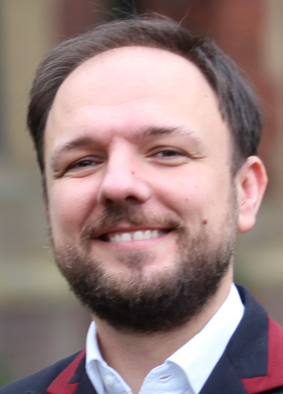
Marie Murphy is a Lecturer in Behavioural Science related to Dentistry. Her research focuses on making health services more accessible to underserved groups, including people with lower socioeconomic backgrounds, with ethnic minority backgrounds, and with additional support needs. She is a member of the Childsmile Central Evaluation Research Team and investigates the implementation of a family support intervention for early childhood toothbrushing. Marie has worked on several projects to understand barriers to cancer screening participation and to support underserved groups with preventing and finding cancer early.
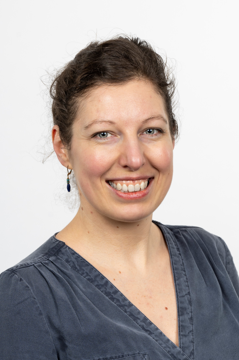
Alex McMahon is Reader of Epidemiology in the Dental School. He has expertise in clinical trials, study design, epidemiology and statistics – having previously worked in pharmacoepidemiology, as lead analyst in the Robertson Centre for Biostatistics in the University of Glasgow, before joining the Dental School and working on multiple studies of child oral health and head and neck cancer including pioneering national population data linkage analyses. He was originally a medical statistician in the medical statistics departments of Glaxo Group Research and Data Analysis & Research Ltd, and then worked at Ninewells hospital in Dundee in the Medicine’s Monitoring Department. Alex is also a Consultant Epidemiologist in Public Health Scotland leading on epidemiology and statistics advice for the Dental and Oral Health Programme.
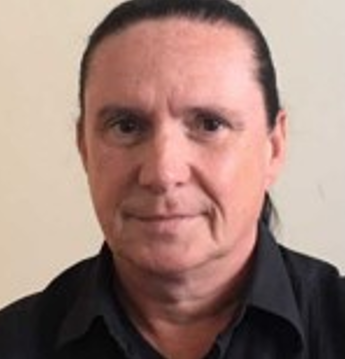
Mariel Goulart is currently a Research Assistant in the Community Oral Health datalabs working on a number of child oral health and head and neck cancer projects including Childsmile and HEADSpAcE. Mariel has recently completed her PhD and is developing an impressive range of analytical skills including in Structured Equation Modelling. This project will provide Mariel with a fantastic post-doctoral early career research opportunity and witll lead to development of independent research skills.
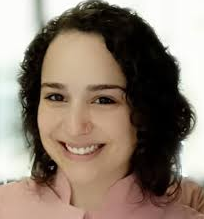
Research assistant in the Childsmile Central Evaluation and Research Team – currently managing the routine monitoring of the CS programme and working on the evaluation of a motivational interviewing tool for CS Dental Health Support Workers.
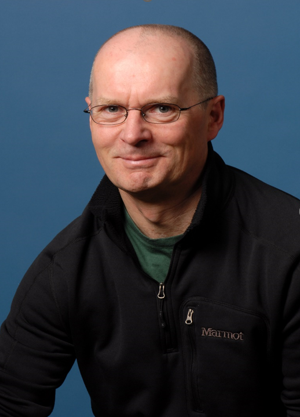
Honorary Staff and Affiliates
Honorary Senior Lecturer Dr Alastair Ross
Honorary Professor Lorna Macpherson
Childsmile PhDs
Childsmile Phds
Ongoing
|
Almutairi, Budur, Developing and evaluating a Toothbrushing Programme in Saudi Arabia (TOPS) – through a cluster randomized controlled trial in kindergartens in Riyadh, Saudi Arabia.
|
 |
|
Cousins, Kyle, Childhood Caries: understanding the role of early life behaviours and social determinants on risk and inequalities: A novel data linkage cohort study. Funded by the Borrow Foundation in collaboration with ScotCen. |
|
|
Mahmoud, Ahmed, Investigating the role of ethnicity and socioeconomic factors in the oral health of children in Scotland.
|
|
|
O'Leary, Frances, Dental caries and multiple long-term conditions in children and adolescents across Scotland; the trends, inequalities, and the reach and impact of Childsmile.
|
|
Completed
Fletcher, Emma (2024) Fletcher 2024 Developing a theory based toolkit. PhD thesis, University of Glasgow.
Eaves, Jennifer (2023) Eaves 2023 Optimising delivery of the Childsmile nursery programme. PhD thesis, University of Glasgow.
Karamat, Aalia (2023) Karamat 2023 Enhancing Scotland’s Childsmile programme through Community Linking PhD thesis, University of Glasgow.
Stewart, Ryan (2023) Stewart 2023 Obesity and dental caries in children in Scotland. PhD thesis, University of Glasgow.
Celis Sersen, Andrés Osvaldo (2022) Evaluation of the impart of national oral health improvement programmes of Chile on the oral health of the child population. PhD thesis, University of Glasgow.
Anopa, Yulia (2020) Economics of primary caries prevention in preschool children. PhD thesis, University of Glasgow.
Kidd, Jamie Brian Rutherford (2019) Developing a population data linkage cohort to investigate the impact on child oral health outcomes following the roll-out of the Childsmile programme in Scotland. PhD thesis, University of Glasgow.
Hodgins, Faith (2017) A mixed methods evaluation of Childsmile's targeted and tailored Dental Health Support Worker intervention. PhD thesis, University of Glasgow.
Young, Mairi Anne (2017) Optimising the role of the dental health support worker in Childsmile Practice: a comparative Realist approach. PhD thesis, University of Glasgow.
Key Publications
Sherriff, A. , Stewart, R., Macpherson, L. M.D. , Kidd, J. B.R., Henderson, A. , Cairns, D. and Conway, D. I. (2023) Child oral health and preventive dental service access among children with intellectual disabilities, autism and other educational additional support needs: a population-based record linkage cohort study. Community Dentistry and Oral Epidemiology, (doi: 10.1111/cdoe.12805) (PMID:36354158)
Celis A, Conway DI, Macpherson LMD, McMahon AD.
Data Resource Profile: National Child Oral Health Improvement Programmes for Chile - PubMed (nih.gov)
Int J Epidemiol. 2023 Apr 19;52(2):e110-e115.
Bradford DRR, Allik M, McMahon AD, Brown D.
Assessing the risk of endogeneity bias in health and mortality inequalities research using composite measures of multiple deprivation which include health-related indicators: A case study using the Scottish Index of Multiple Deprivation and population health and mortality data - PubMed (nih.gov)
Health Place. 2023 Mar;80:102998.
Ross AJ, Sherriff A, Kidd J, Deas L, Eaves J, Blokland A, Wright W, King P, McMahon AD, Conway DI, Macpherson LMD,
Evaluating Childsmile, Scotland's National Oral Health Improvement Programme for children - PubMed (nih.gov)
Community Dent Oral Epidemiol. 2023 Feb;51(1):133-138.
Celis, A., Conway, D. I. , Macpherson, L. M.D. and McMahon, A. D. (2022) Data resource profile: National Child Oral Health Improvement Programmes for Chile. International Journal of Epidemiology, (doi: 10.1093/ije/dyac191) (PMID:36264249) (Early Online Publication)
Ross, A. J. et al. (2022) Evaluating Childsmile, Scotland’s national oral health improvement programme for children. Community Dentistry and Oral Epidemiology, (Accepted for Publication)
Anopa Y, Macpherson LMD, McMahon AD, Wright W, Conway DI, McIntosh E.
Economic Evaluation of the Protecting Teeth @ 3 Randomized Controlled Trial - PubMed (nih.gov)
JDR Clin Trans Res. 2022 Apr 20:23800844221090444.
Bradford DRR, Allik M, McMahon AD, Brown D.
Physical health of care-experienced young children in high-income countries: a scoping review protocol - PubMed (nih.gov)
BMJ Open. 2022 Sep 7;12(9):e063648. doi: 10.1136/bmjopen-2022-063648.
Burns, J., Conway, D. I. , Gnich, W. and Macpherson, L. M.D. (2021) A systematic review of interventions to link families with pre-school children from healthcare services to community-based support. Journal of Public Health, (doi: 10.1093/pubmed/fdaa242) (PMID:33423052) (Early Online Publication)
Young, M., Ross, A. , Sherriff, A. , Deas, L. and Gnich, W. (2021) Child health interventions delivered by lay health workers to parents: a realist review. Journal of Child Health Care, 25(4), pp. 628-646. (doi: 10.1177/1367493520983124)
Siyang Yuan, S., Humphris, G., Macpherson, L. , Ross, A. and Freeman, R. (2021) Communicating with parents and preschool children: a qualitative exploration of dental professional-parent-child interactions during paediatric consultations to prevent early childhood caries. Frontiers in Public Health, 9, 669395. (doi: 10.3389/fpubh.2021.669395) (PMID:34055728) (PMCID:PMC8149946)
Yuan, S., Humphris, G., Macpherson, L. , Ross, A. and Freeman, R. (2021) Communication strategies to encourage child participation in an oral health promotion session: An exemplar video observational study. Health Expectations, 24(2), pp. 700-708. (doi: 10.1111/hex.13219) (PMID:33606905) (PMCID:PMC8077076)
Anopa, Y., Macpherson, L. and McIntosh, E. (2020) Systematic review of economic evaluations of primary caries prevention in 2- to 5-year-old preschool children. Value in Health, 23(8), pp. 1109-1118. (doi: 10.1016/j.jval.2020.04.1823)
Anopa, Y. and Conway, D. I. (2020) Exploring the cost-effectiveness of child dental caries prevention programmes. Are we comparing apples and oranges? Evidence-Based Dentistry, 21(1), pp. 5-7. (doi: 10.1038/s41432-020-0085-7) (PMID:32221482)
Kidd, J. B.R., McMahon, A. D. , Sherriff, A. , Gnich, W., Mahmoud, A., Macpherson, L. M.D. and Conway, D. I. (2020) Evaluation of a national complex oral health improvement programme: a population data linkage cohort study in Scotland. BMJ Open, 10(11), e038116. (doi: 10.1136/bmjopen-2020-038116)
McMahon, A. D. , Wright, W., Anopa, Y., McIntosh, E. , Turner, S., Conway, D. I. and Macpherson, L. M.D. (2020) Fluoride varnish in nursery schools: a randomised controlled trial – Protecting Teeth @3. Caries Research, (doi: 10.1159/000509680)
Macpherson, L. M.D. , Rodgers, J. and Conway, D. I. (2019) Childsmile after 10 years part 1: background, theory and principles. Dental Update, 46(2), pp. 113-116. (doi: 10.12968/denu.2019.46.2.113)
Macpherson, L. M.D. , Rodgers, J. and Conway, D. I. (2019) Childsmile after 10 years part 2: programme development, implementation and evaluation. Dental Update, 46(3), pp. 238-246. (doi: 10.12968/denu.2019.46.3.238)
Yuan, S., Humphris, G., Ross, A. , Macpherson, L. and Freeman, R. (2019) Recording communication in primary dental practice: an exploratory study of interactions between dental health professionals, children and parents. British Dental Journal, 227, pp. 887-892. (doi: 10.1038/s41415-019-0890-6) (PMID:31758130)
Gnich, W., Sherriff, A. , Bonetti, D., Conway, D. I. and Macpherson, L. M.D. (2018) The effect of introducing a financial incentive to promote application of fluoride varnish in dental practice in Scotland: a natural experiment. Implementation Science, 13, 95. (doi: 10.1186/s13012-018-0775-0) (PMID:29996868) (PMCID:PMC6042272)
Hodgins, F., Sherriff, A. , Gnich, W., Ross, A. J. and Macpherson, L. M.D. (2018) The effectiveness of Dental Health Support Workers at linking families with primary care dental practices: a population-wide data linkage cohort study. BMC Oral Health, 18, 191. (doi: 10.1186/s12903-018-0650-z) (PMID:30463549) (PMCID:PMC6249895)
McMahon, A. D., Elliott L, Macpherson, L. , Sharpe KH, Connelly G, Milligan I, Wilson P, Clark D, King A, Wood R, Conway D.I. (2018) Inequalities in the dental health needs and access to dental services among looked after children in Scotland: a population data linkage study. Archives of Disease in Childhood, 103(1), pp. 39-43. (doi: 10.1136/archdischild-2016-312389) (PMID:28855231)
Rhouma, O., Sherriff, A. , Macpherson, L. and Ross, A. (2018) Developing a Co-designed Human Factors Toolkit to Support Application of Preventive Treatment to Children Attending General Dental Practice in Scotland. 14th EAPD Congress, Lugano, Switzerland, 20-23 Jun 2018
Ross, A. , Sherriff, A. , Kidd, J., Gnich, W., Anderson, J.E., Deas, L. and Macpherson, L. (2018) A systems approach using the functional resonance analysis method to support fluoride varnish application for children attending general dental practice. Applied Ergonomics, 68, pp. 294-303. (doi: 10.1016/j.apergo.2017.12.005) (PMID:29409648)
Yuan, S., Humphris, G., Ross, A. , Macpherson, L. and Freeman, R. (2018) Moderating Parents: Exploring Child-Parent-Dental Professional Communication in Preventive Dental Visits. 96th General Session and Exhibition of the International Association of Dental Research (IADR 2018), London, UK, 25-28 July 2018.
Clark, D, King A, Sharpe K, Connelly G, Elliott L, Macpherson, L. , McMahon, A. D., Milligan I, Wilson P, Conway D.I, Wood R. (2017) Linking routinely collected social work, education, and health data to enable monitoring of the health and healthcare of school aged children in state care ('looked after children') in Scotland: a national demonstration project. Public Health, 150, pp. 101-111. (doi: 10.1016/j.puhe.2017.05.003) (PMID:28666173)
O'Keefe EJ, McMahon AD, Jones CM, Curnow MM, Macpherson LMD.
Evaluation of dental therapists undertaking dental examinations in a school setting in Scotland - PubMed (nih.gov)
Community Dent Oral Epidemiol. 2016 Dec;44(6):515-522.
Anopa, Y., McMahon, A. D. , Conway, D. I. , Ball, G. E., McIntosh, E. and Macpherson, L. M. D. (2015) Improving child oral health: cost analysis of a national nursery toothbrushing programme. PLoS ONE, 10(9), e0136211. (doi: 10.1371/journal.pone.0136211) (PMID:26305577) (PMCID:PMC4549338)
O'Keefe EJ, McMahon AD, Jones CM, Curnow MM, Macpherson LMD.
Comparison of the caries-protective effect of fluoride varnish with treatment as usual in nursery school attendees receiving preventive oral health support through the Childsmile oral health improvement programme - the Protecting Teeth@3 Study: a randomised controlled trial - PubMed (nih.gov)
BMC Oral Health. 2015 Dec 18;15:160.
Blair YI, McMahon AD, Gnich W, Conway DI, Macpherson LMD.
Elimination of 'the Glasgow effect' in levels of dental caries in Scotland's five-year-old children: 10 cross-sectional surveys (1994-2012) - PubMed (nih.gov)
BMC Public Health. 2015 Mar 4;15:212.
Macpherson, L.M.D. , Anopa, Y., Conway, D.I. and McMahon, A.D. (2013) National supervised toothbrushing program and dental decay in Scotland. Journal of Dental Research, 92(2), pp. 109-113. (doi: 10.1177/0022034512470690)
Brewster, L., Sherriff, A. and Macpherson, L. (2013) Effectiveness and reach of a directed-population approach to improving dental health and reducing inequalities: a cross sectional study. BMC Public Health, 13(1), p. 778. (doi: 10.1186/1471-2458-13-778)
Eaves, J. and Gnich, W. (2013). Can programme theory be used as a 'translational tool’ to optimise health service delivery in a national early years’ initiative in Scotland: a case study. BMC Health Services Research, 13, 425. https://doi.org/10.1186/1472-6963-13-425
Deas, L., Mattu, L., Gnich, W. (2013) Intelligent policy making? Key actors' perspectives on the development and implementation of an early years' initiative in Scotland's public health arena. Social Science & Medicine, 96, 1-8.
https://doi.org/10.1016/j.socscimed.2013.07.001
Blair YI, McMahon AD, Macpherson LMD.
Comparison and relative utility of inequality measurements: as applied to Scotland's child dental health - PubMed (nih.gov)
PLoS One. 2013;8(3):e58593.
Blair YI, Macpherson LMD, McCall DR, McMahon AD.
Dental health of 5-year-olds following community-based oral health promotion in Glasgow, UK - PubMed (nih.gov)
International Journal of Paediatric Dentistry 2006; 16; 6: 381-452.
Blair Y, Macpherson LMD, McCall DR, McMahon AD, Stephen KW.
Glasgow nursery-based caries experience, before and after a community development-based oral health programme's implementation - PubMed (nih.gov)
Community Dent Health. 2004 Dec;21(4):291-8.





